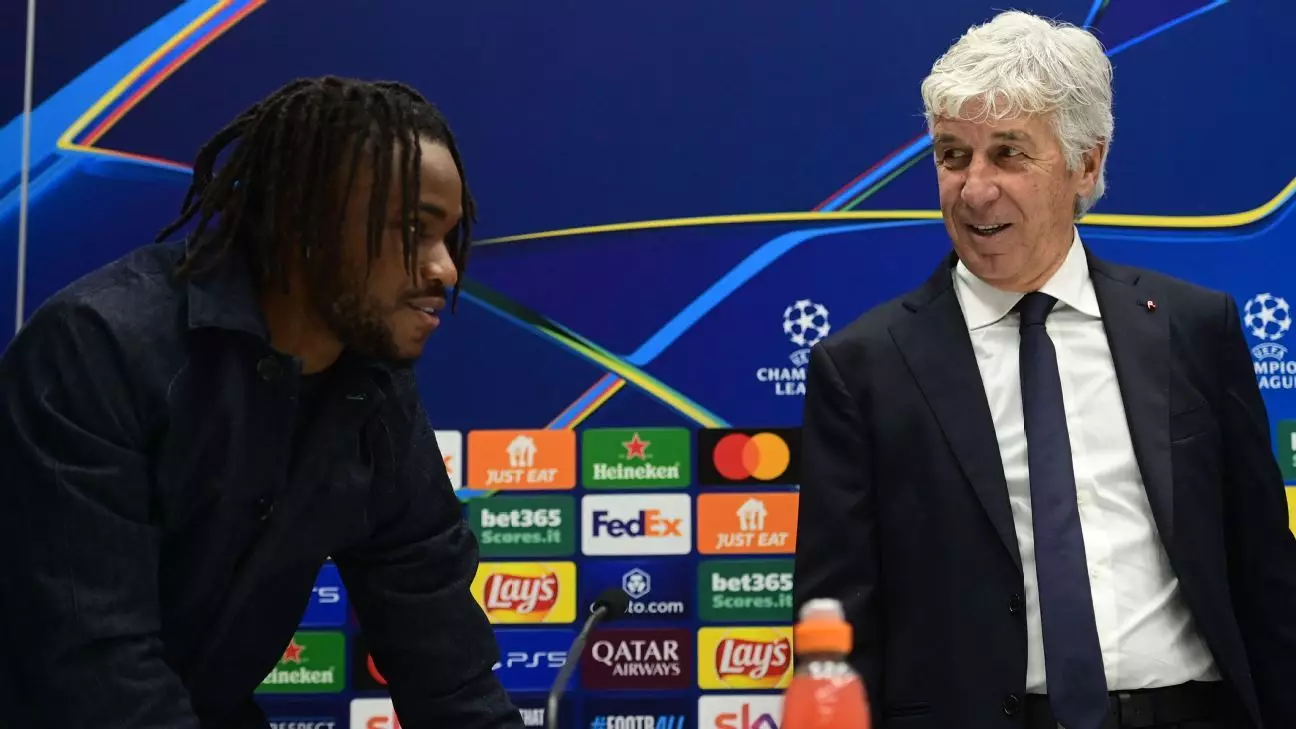In the world of professional sports, pressure and scrutiny are constant companions for athletes. Recently, Ademola Lookman, a forward for Atalanta, found himself at the center of controversy following a penalty miss during the team’s 3-1 loss to Club Brugge in the UEFA Champions League. The defeat led to Atalanta’s elimination with a 5-2 aggregate score, but it was Gasperini’s public criticism of Lookman’s performance that set the stage for a heated exchange between player and manager. Instead of merely accepting fault, Lookman has spoken out against what he perceives as an unfair and disrespectful attack, thus igniting a narrative about accountability, respect, and dialogue in the intensity of competitive sports.
In a post-match news conference, Atalanta’s head coach Gian Piero Gasperini did not hold back his thoughts on Lookman’s performance, particularly focusing on the failed penalty attempt that could have tilted the match in Atalanta’s favor. Gasperini asserted that Lookman was not an appropriate choice for taking the penalty and went as far as labeling him among the least effective penalty takers he had encountered. He indicated that other players, specifically Charles De Ketelaere and Mateo Retegui, would have been better suited for the task, suggesting that Lookman’s decision to take the shot was impulsive and misguided.
This critique was not just an observation; it carried the weight of accountability and the expectation for players to execute in high-stakes scenarios. In the realm of professional sports, comments from a coach can be perceived as a reflection of team hierarchy and power dynamics. Gasperini’s remarks have drawn attention not just to the tactical error but also to a deeper question: where is the balance between constructive criticism and public shaming?
A Player’s Perspective
Lookman took to social media following the match to express his dismay over Gasperini’s comments. He articulated a sentiment that resonated with many athletes who have faced public censure: it is one thing to discuss mistakes in private, but to vocalize criticism in front of the media not only feels personal but can also undermine team unity. Lookman contextualized his own experience, invoking the broader notion of respect and teamwork, stating that the work he has put in for the team and the city of Bergamo should go unrecognized with such harsh critiques.
His response also touched upon the emotional turmoil athletes often face—it is not just about the loss in a match, but also the personal toll that criticism can take. Acknowledging the pressure of performing under scrutiny, Lookman emphasized the importance of resilience and the capacity to transform negative experiences into motivational power. His commitment to Atalanta and their fans should only augment the need for constructive communication within the team environment, which Gasperini’s public comments might have jeopardized.
Broader Implications for Team Dynamics
The exchange between Lookman and Gasperini invites a broader discussion about team management and interpersonal relationships within sports organizations. Effective leadership requires a careful balance between holding players accountable and fostering an environment of mutual respect and support. The fallout from this incident could have lasting implications on team morale. While criticism is an inherent part of sports, it’s essential for leaders to consider the context and manner in which they deliver it.
Moreover, Lookman’s comments reveal an interpersonal dynamic that reflects a desire for constructive feedback rather than public humiliation. Coaches must remember that their words carry significant weight and can affect an athlete’s confidence and overall performance.
As Ademola Lookman seeks to overcome this tumultuous moment, it’s crucial for both he and Gasperini to learn from this exchange. The road to recovery from a defeat is often littered with emotional hurdles, but transparency and dialogue can reshape any negative sentiment into a form of collective growth. This not only benefits the individuals involved but also ultimately enhances the resilience of the entire team.
In closing, the saga surrounding Lookman’s penalty miss and Gasperini’s critique serves as a reminder of the delicate nature of relationships in high-performance environments. As teams strive for excellence, leaders must remember that their words do not just critique performance but also shape the culture and emotional well-being of the players they manage.

Leave a Reply